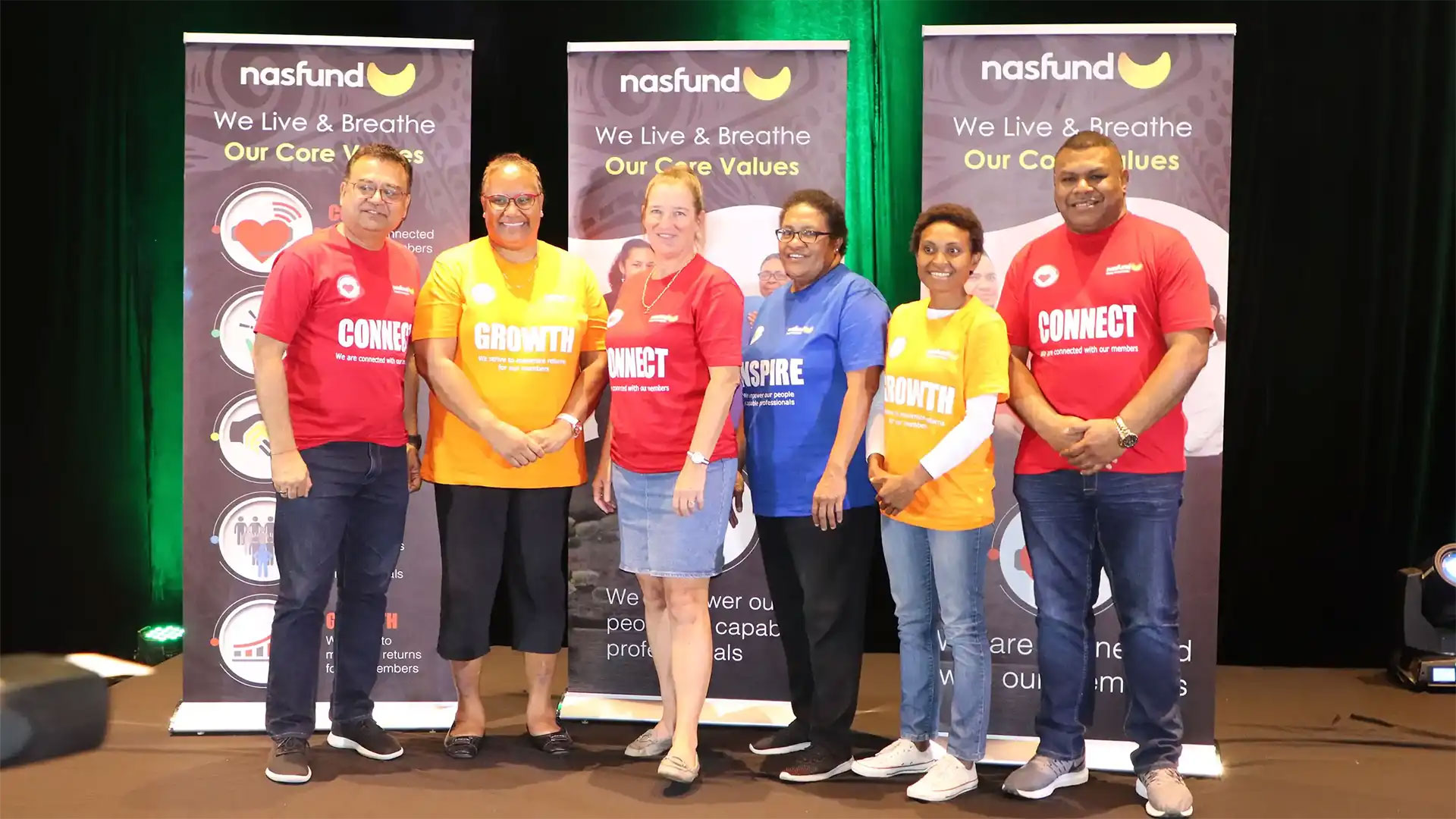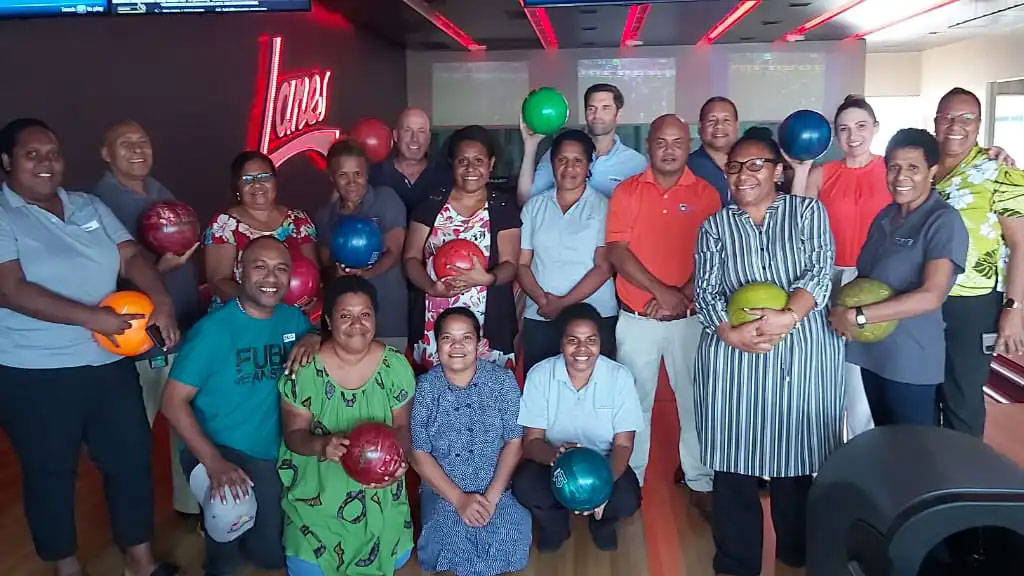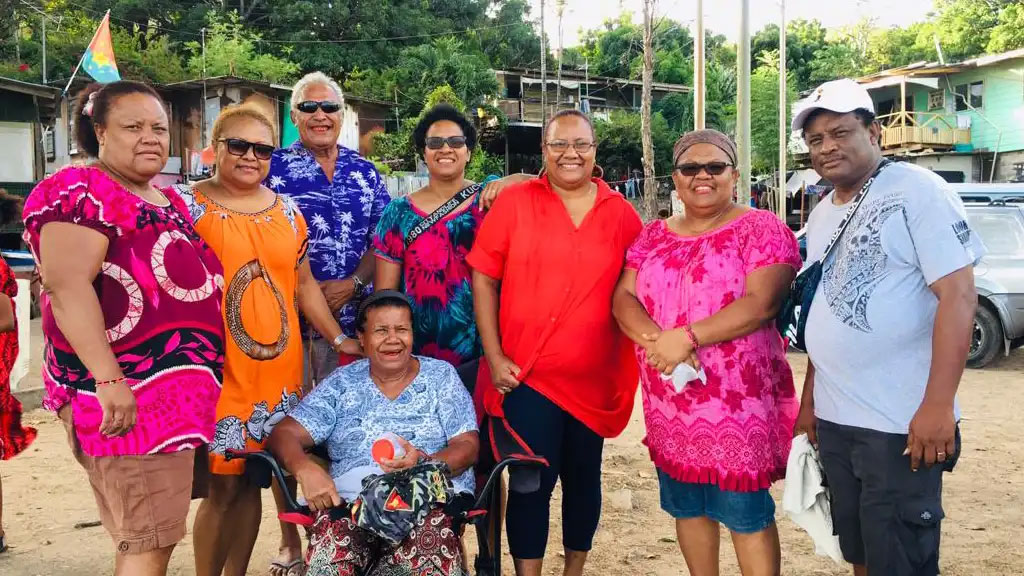
Tetra Tech’s country manager for Papua New Guinea (PNG), Jules Leki-Maliaki, has more than 30 years’ experience in international development.
Jules’ career began in 1993 as an intern with Government of PNG’s Investment Promotion Authority, where she spent 21 years. She later served the Australian Government’s Department of Foreign Affairs and Trade and, in 2021, she joined Tetra Tech.
Jules’ passion for the greater good for humanity—along with sense of purpose, objectivity and building positive legacies—are what drives her forward every day. International development work gives her a sense of satisfaction and a positive outlook for a better country, region and the world. In her local language, her middle name Valivanagi depicts “message” or “news that will live on forever” (legacy/legend).
At the heart of everything Jules does are her two children and her family. They are the reason why she continues to strive for excellence in the development space. For Jules, it is all about building a safe, secure and prosperous country for her children and the future generations to thrive in.
What has been your experience with Tetra Tech so far?
I am blessed to have worked in international development over 30 years. Here I have been able to develop an appreciation of the government and socioeconomic landscape of PNG, relationships with development partners and other multilateral organisations, regional partnerships and emerging trends and developments affecting PNG and the region.
A primary focus in my current role is to understand the evolving social, political and economic landscape, establishing and maintaining strategic relationships and partnerships with key stakeholders. I create dialogue and conversations to harness these strategic relationships in order to contribute to the ongoing conversations on the development agenda for PNG, for the benefit and greater good of development partners, governments and for Tetra Tech.
Can you tell us more about your work with the Australian Government?
Having years of experience on the bilateral relationship between the governments of Australia and PNG, I have and continue to raise awareness of the PNG-Australia Partnership which is an important bilateral relationship between both countries from a historical, social and economic, geographical and more importantly from people-to-people linkages perspective.
What kind of growth and opportunity are you seeing in PNG today?
In my view, PNG has been at the crossroads in its development journey for a few years now, and now is the time to take a stock take, review and reset its development aspirations and clearly articulate and strategically plan for an expected growth trajectory in the next 10 – 15 years.
More importantly, these growth aspirations and strategies must be developed with realism and a fact-check on where the country’s social and economic development indexes are at this point in time. By clearly unpacking, understanding and prioritizing development gaps, policies and implementation, plans must be supported and resourced to successfully deliver these aspirations.
What opportunities lie ahead for PNG?
From a global and regional perspective, PNG is in a strategic position to leverage support from development partners near and far to strategically support and deliver its development goals and aspirations.
There are internal and external factors and pressures that PNG is confronted with every day and there is an increasing demand for better services and quality of life demanded by a rapidly growing population. Therefore, it is critical for PNG to respond to these targeted demands, by strategically aligning with current and emerging development partners that align with PNG’s development aspirations.
The increasing interest in PNG and the region is intentional and deliberate by external partners and therefore, PNG must be prepared and ready to embrace these opportunities with caution and calculated risks.
At this point in time and up to 2027, I believe the Government’s MTDP IV is perhaps the most significant development policy and framework that the Government of PNG is using as a benchmark to grow the domestic economy.
In my view, development partners and international friends should ensure alignment of respective development support programs to the MTDP IV. This is important for sustainability, efficiency, capacity development and measurement of how development support programs are impacting local communities, the people and the country.
Can you tell us more about what localisation means in the contexts you're working in?
Through the lens of Tetra Tech’s mission “Thriving People, Thriving Communities and Thriving Planet,” there is no better time than the present to review, realign and reset the development support programming agenda in PNG.
What lies ahead for your career and your work in development?
My experiences and knowledge gained over the years has equipped me to sharpen my leadership and management skills. I use these skills and experience to enhance my work in the development sector, particularly around strengthening relationships between PNG and development partners, and taking lead in conversations and being an advocate on future development support programs for PNG. As PNG navigates its development journey through an evolving domestic, regional and global geography and pressures, I believe a consolidated and holistic approach with renewed and strengthened relationships and partnerships with strategic partners (local and international) and a clear roadmap aligned with the Medium-Term Development Plan is crucial for economic and social sustainability and a safe and secured PNG.
Moreover, the shift towards locally led development and localisation is imminent, necessitating a collaborative effort from all stakeholders to ensure transparency, accountability and effective solutions tailored to the local context.
As I look ahead, I am committed and passionate to continuing this journey of impact and making a difference, leveraging my expertise, relationships and networks to contribute meaningfully to the advancement of PNG, its people and its future. Together, with a shared vision and collective action, we can realise a future where thriving communities and a thriving planet are the cornerstones of our success.

